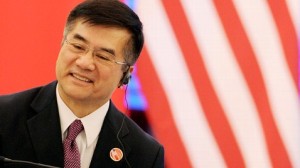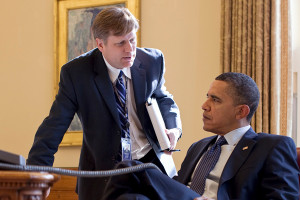
The parting shots of China’s establishment reflected resentment over the machinations US Ambassador Gary Locke helped facilitate during his 2 year stint in Beijing. The Chinese paper, The Global Times, reported in its article, “US Ambassador to China to step down,” specifically that, “amid the applause Locke won from the public praising his style, heated debates stirred as adverse voices arose saying Locke making a show was an American plot to stir citizens’ resentment of their own leaders.”
Locke’s “style” was that of a modest man “of the people,” hinging on widely publicized images of him carrying his own luggage and ordering his own coffee at the airport upon his arrival. It was a playact designed intentionally by Washington script writers to stand in contrast to the perception that China’s leadership is opulent and out of touch with the Chinese people. In reality, Locke has well above average annual income in America and many times more than the average Chinese citizen. He holds millions of dollars in assets and is ranked as one of the richest executive branch officials in the United States, according to the South China Morning Post.
Why would China find Locke’s visits to these regions controversial? Because both Tibet and Xinjiang have been the scenes of separatist violence for years, with a recent and horrific mass knife attack in Kunming, China being the work of Uyghur terrorists hailing from Xinjiang. What’s worse is that the United States has provided long-term aid to both separatist movements as well as to Chen Guangcheng and other anti-government “activists.”
It is clear that Locke’s role in China was not to maintain good relations between the United States and China, but rather to incite conflict and division across Chinese society as part of the United States’ broader strategy of undermining and replacing governments it perceives as working against its global hegemonic ambitions.

Just days after his arrival in Moscow, leaders of the Russian opposition literally lined up outside the US Embassy. Attempts to stage large street rallies like those seen in the Arab Spring and later on in Ukraine’s more recent Euromaidan protests were unsuccessfully carried out by these very opposition leaders over the next year.
There is also former-US Ambassador to Syria, Robert Ford. He has been accused of arranging Salvadorian-style death squads in Syria. He abandoned his role in maintaining amicable relations with the Syrian government and instead openly and eagerly aligned himself with the US-backed opposition. It is yet another transparent example of a US ambassador creating divisions and perpetuating strife within a nation as an agitator, rather than promoting healthy and peaceful diplomatic ties as an ambassador, or offering himself as an objective and constructive mediator.
The New York Times would even goes as far as announcing in their article, “U.S. Representative to Syrian Opposition Is Retiring,” that, “as the American ambassador in Damascus, Mr. Ford was active in challenging President Bashar al-Assad’s crackdown on the emerging political opposition in Syria,” and that, “he later became the chief American envoy to the moderate Syrian opposition and played a central role during the first round of the peace talks in Geneva this month [February 2014].”
Locke, McFaul, and Ford are just three examples of US ambassadors abandoning their diplomatic duties in exchange for roles as chief agitators. The US diplomatic community clearly is being used not to establish closer ties with foreign countries, but as yet another means to exert hegemonic control over nations perceived to be beyond their dominion. The danger men like Locke, McFaul, Ford, and other pose to genuine diplomats, American or otherwise, is grave. While the US will attempt to portray the actions of its ambassadors as integral to international peace and stability, in reality shaking the trust and confidence people have in traditional diplomatic relations endangers such peace and stability.
For the United States, and particularly the American people whose will and values these ambassadors are charged with representing abroad, recalling and replacing men like Locke, McFaul, and Ford, and all that serve as agitators rather than true ambassadors is not only the right thing to do, but a necessity in ensuring the survival of America’s alleged values and its standing on the global stage.
Ulson Gunnar is a New York-based geopolitical analyst and writer especially for the online magazine “New Eastern Outlook”
